Pre-graze mowing as a method to facilitate grazing management
Karst-Jan SNIP – Improvement of grassland management
Description
Practice abstract
For dairy farms aiming to optimise milk production while efficiently utilising grassland, it is important to maximise fresh grass intake. The family farm ‘Snip Jerseys’ in the Netherlands milks 85 Jersey cows with an average milk production of 6,800 kg per year (6.2% fat and 4.2% protein). The farm has a grazing platform of 26 hectares. The goal is to maximise fresh grass intake, both by offering fresh grass in the barn and through grazing. The target is an intake of 10 kg of dry matter per cow per day during the full grazing season of 180 days, totalling 1,800 kg of dry matter per cow per year. Karst-Jan Snip, the farmer, sees mowing before grazing (pre-graze mowing) as an effective method to increase fresh grass intake during grazing. Before grazing, he cuts the grass to a height of approximately 8-9 cm. The cows follow directly and eat the mown grass while they continue grazing. This method requires labour and machinery, but Karst-Jan considers pre-graze mowing beneficial for several reasons. First, it prevents seed formation. By pre-graze mowing, the flowering grass plants are eaten rather than left in the field, preserving the quality of the pasture. Second, pre-graze mowing helps control the growth of dock (Rumex obtusifolius), a common issue in the region, by reducing its vigour and preventing seed dispersal. Additionally, Jersey cows readily consume young dock plants, further limiting its growth. Karst-Jan is pleased with the pre-graze mowing method, as it facilitates grazing, results in flat, clean, and uniform fields, and eliminates the need for additional cutting between grazings.
Context profil
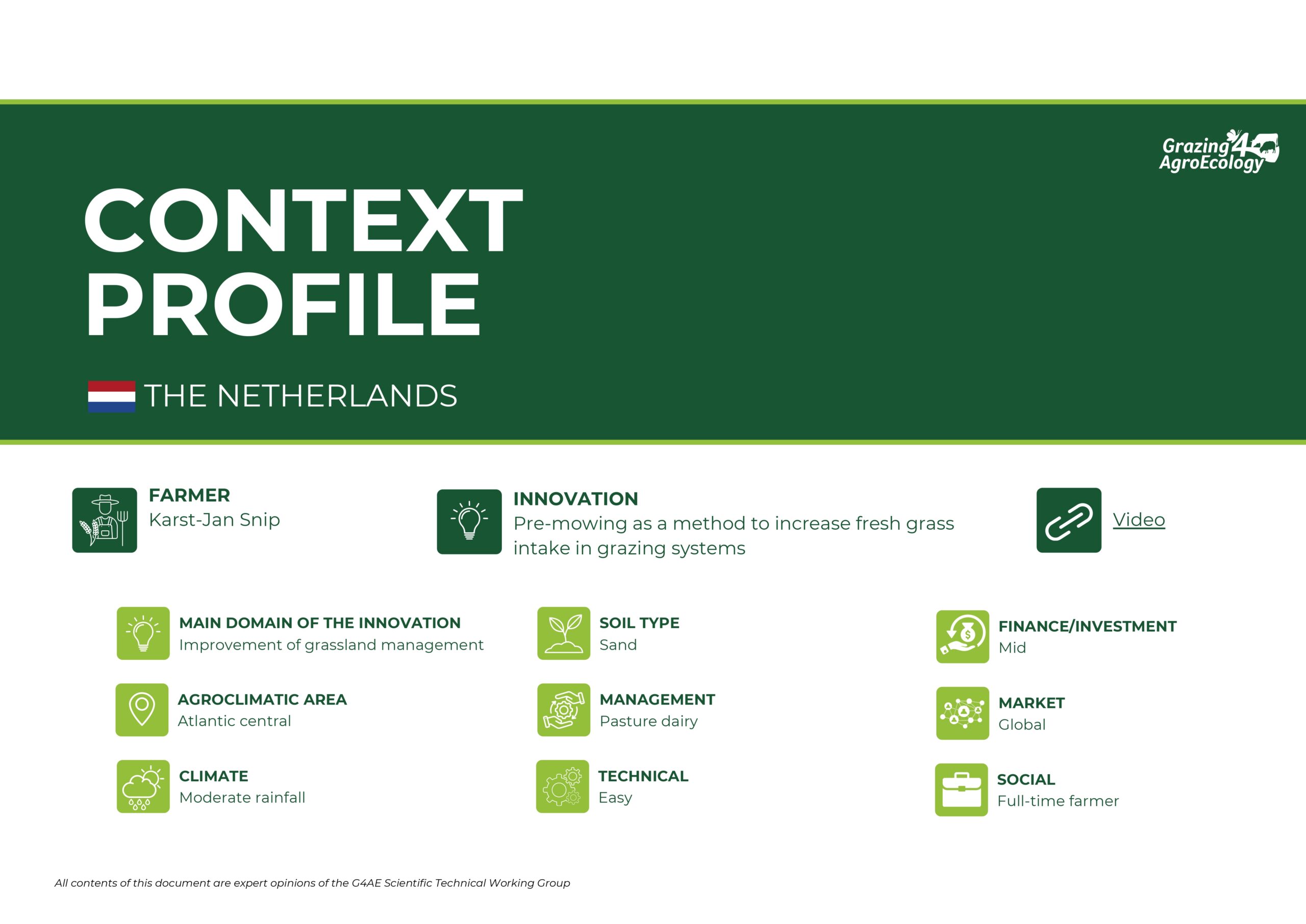
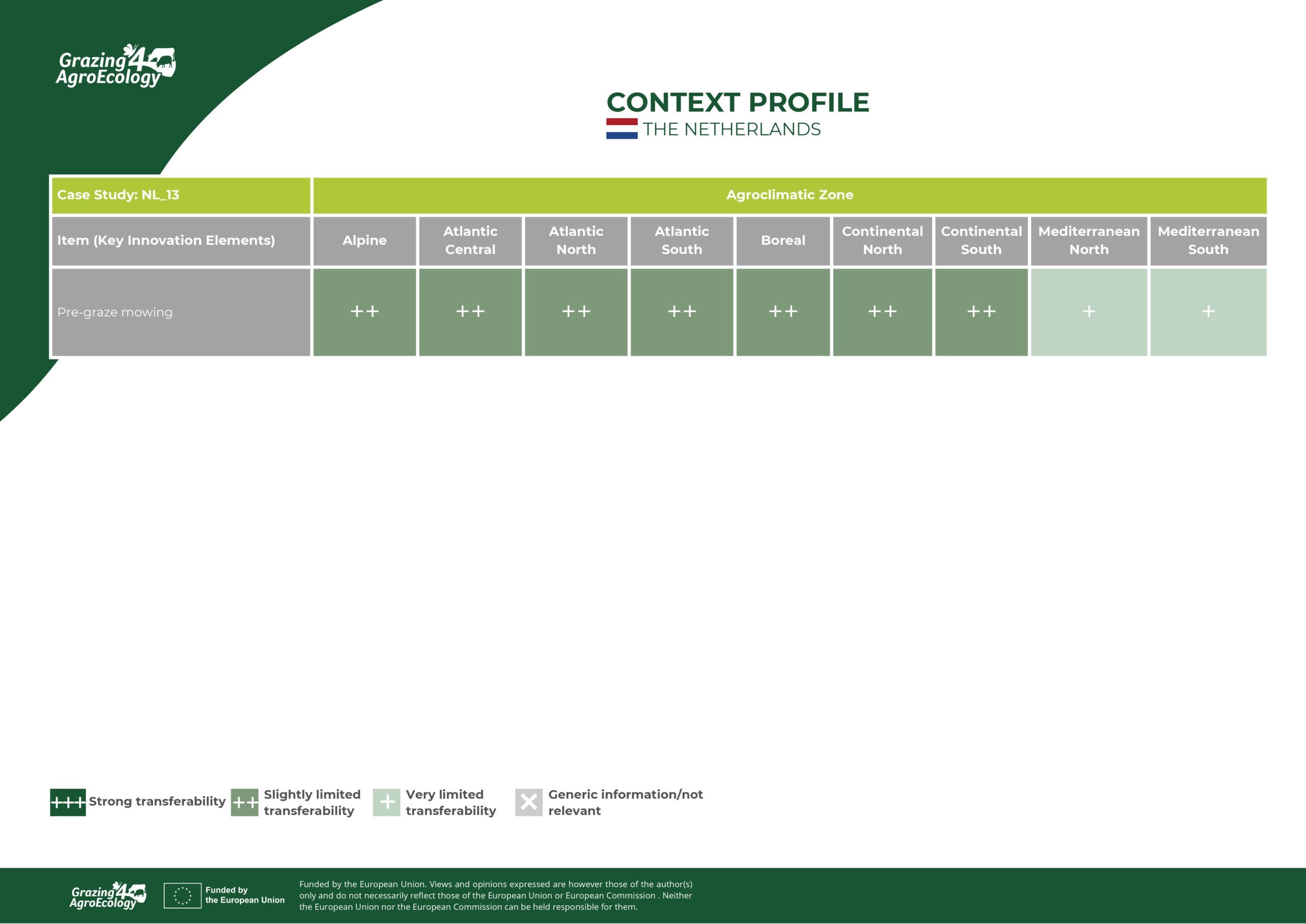
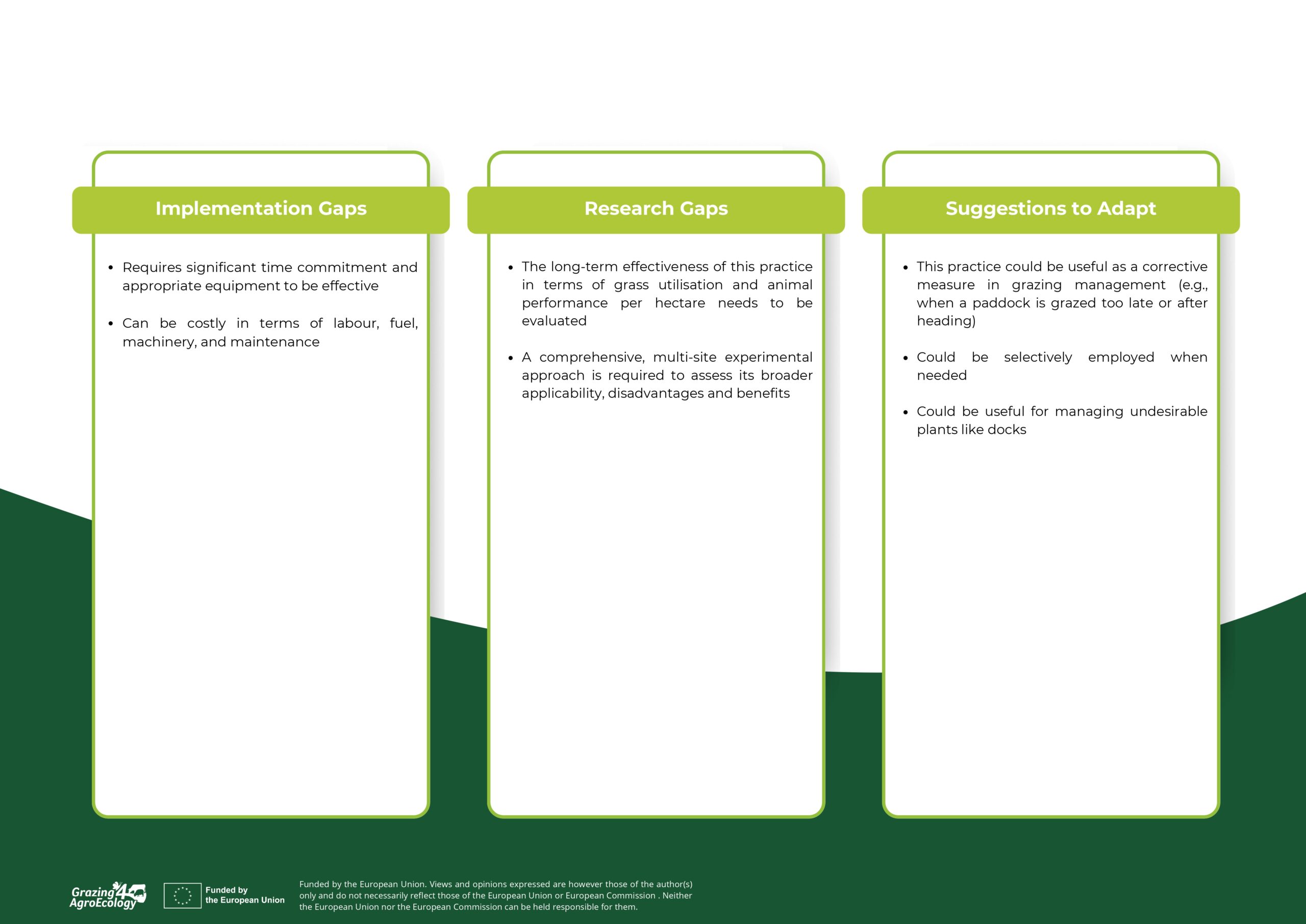
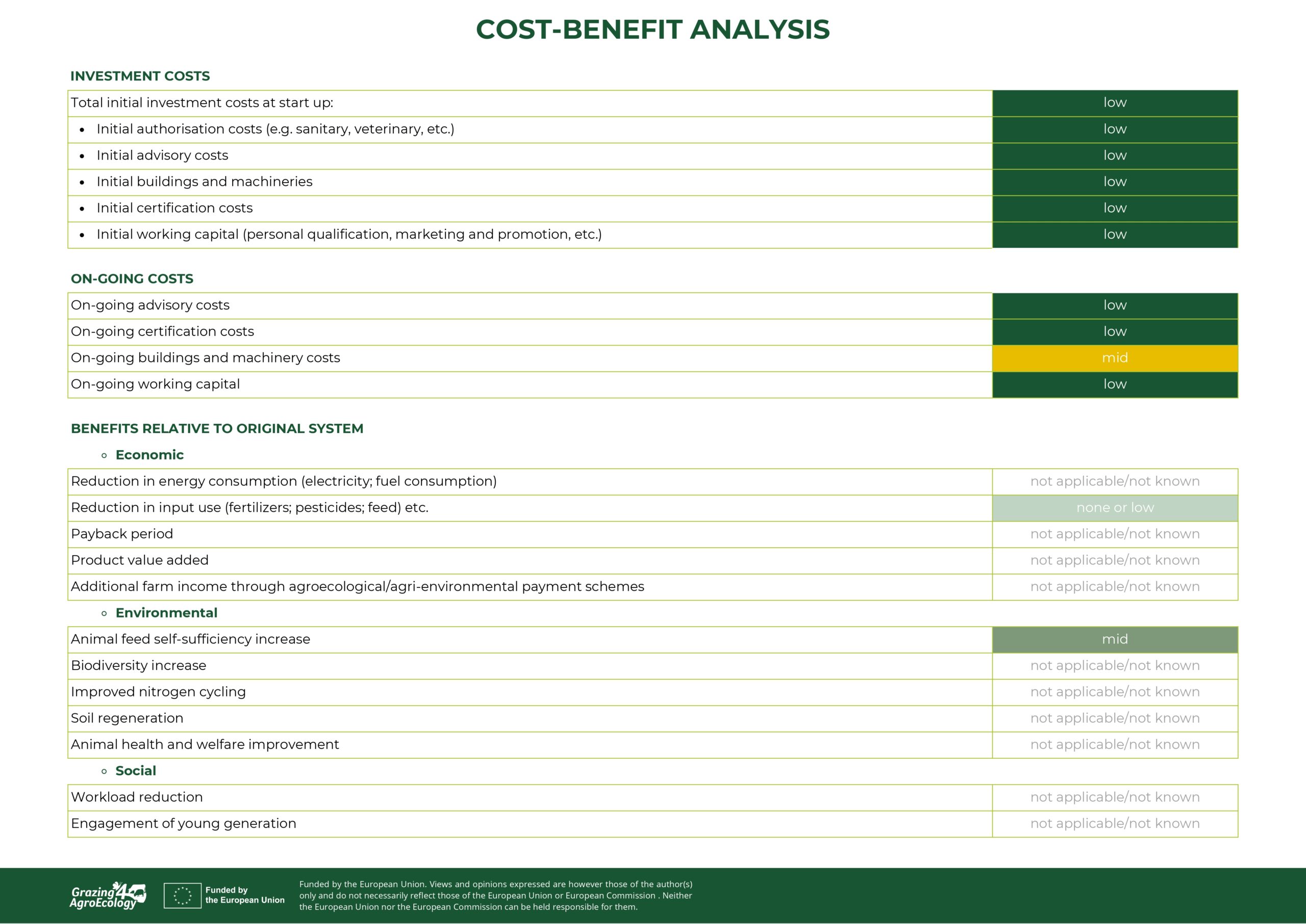
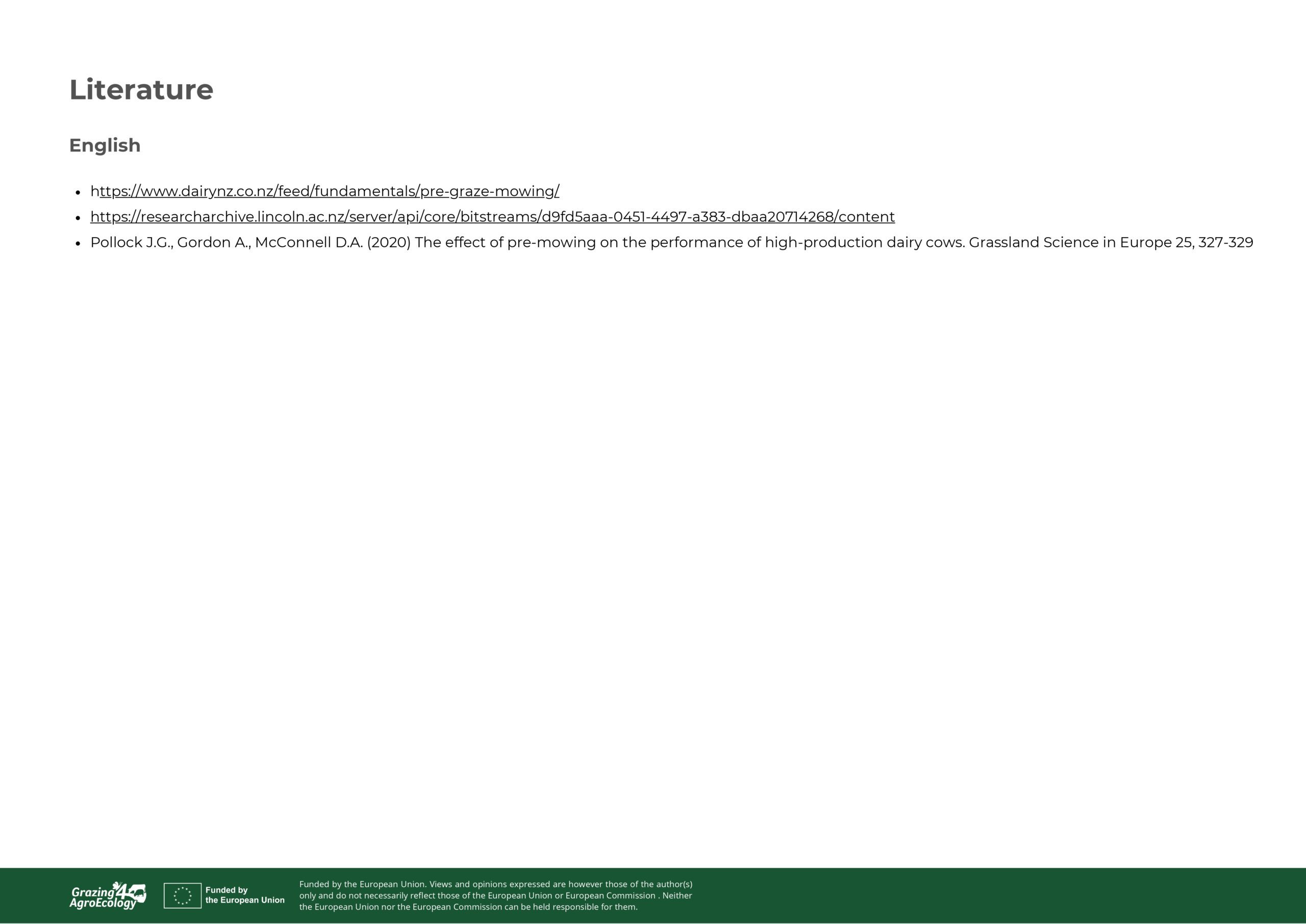
Additional information
| Main domain of innovation | Improvement of grassland management |
|---|---|
| Agroclimatic area | Atlantic central |
| Climate | Moderate rainfall |
| Soil Type | Sand |
| Management | Pasture dairy |
| Technical | Easy |
| Finance/investment | Mid |
| Market | Global |
| Social | Full-time farmer |




